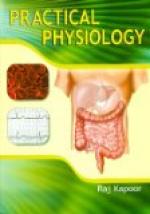Again, the mucous membrane of the mouth must be moist. When the mouth is dry, and receives substances not already in solution, there is no saliva ready to dissolve them; hence, they are tasteless. This absence of taste is common with the parched mouth during a fever.
The tongue assists in bringing the food in contact with the nerves, by pressing it against the roof of the mouth and the soft palate, and thus is produced the fullest sense of taste.
319. Physiological Conditions of Taste. The tongue is the seat of sensations which are quite unlike each other. Thus, besides the sense of taste, there is the sensation of touch, pressure, heat and cold, burning or acrid feelings, and those produced by the application of the tongue to an interrupted electric current. These are distinct sensations, due to some chemical action excited probably in the touch cells, although the true tastes may be excited by causes not strictly chemical. Thus a smart tap on the tongue may excite the sensation of taste.
In the majority of persons the back of the tongue is most sensitive to bitters, and the tip to sweets. Saline matters are perceived most distinctly at the tip, and acid substances at the sides. The nerves of taste are sensitive in an extraordinary degree to some articles of food and certain drugs. For example, the taste of the various preparations of quinine, peppermint, and wild cherry is got rid of with difficulty.
Like the other special senses, that of taste may become fatigued. The repeated tasting of one substance rapidly deadens the sensibility, probably by over-stimulation. Some savors so impress the nerves of taste that others fail to make any impression. This principle is used to make disagreeable medicine somewhat tasteless. Thus a few cloves, or grains of coffee, or a bit of pepper, eaten before a dose of castor oil, renders it less nauseous.
Flavor is something more than taste. It is in reality a mixed sensation, in which smell and taste are both concerned, as is shown by the common observation that one suffering from a cold in the head, which blunts his sense of smell, loses the proper flavor of his food. So if a person be blindfolded, and the nose pinched, he will be unable to distinguish between an apple and an onion, if one be rubbed on the tongue after the other. As soon as the nostrils are opened the difference is at once perceived.
Experiment 142. Put a drop of vinegar
on a friend’s tongue, or on
your own. Notice how the papillae
of the tongue start up.
Experiment 143. Rub different parts
of the tongue with the pointed
end of a piece of salt or gum-aloes, to
show that the back of the
tongue is most sensitive to salt and bitter
substances.
Experiment 144. Repeat the same with
some sweet or sour substances,
to show that the edges of the tongue
are the most sensitive to these
substances.




